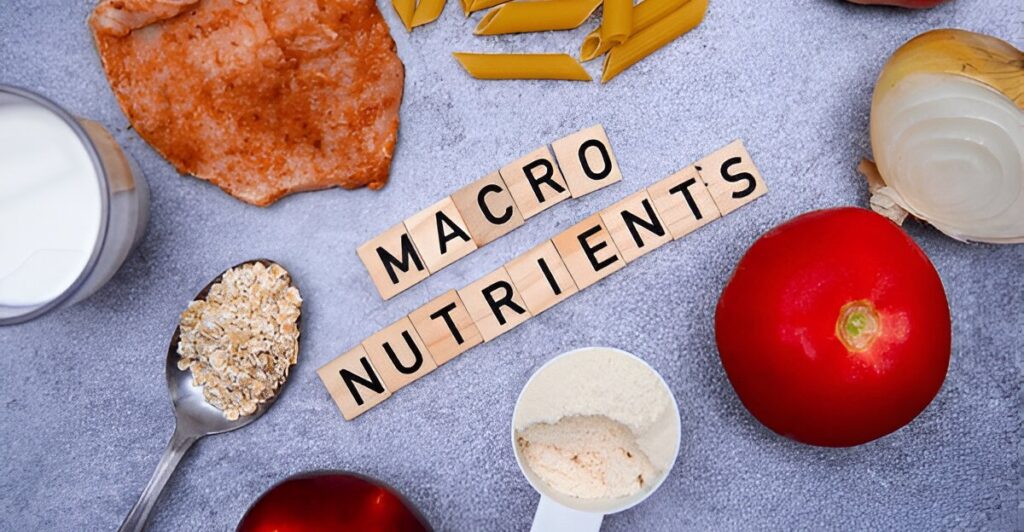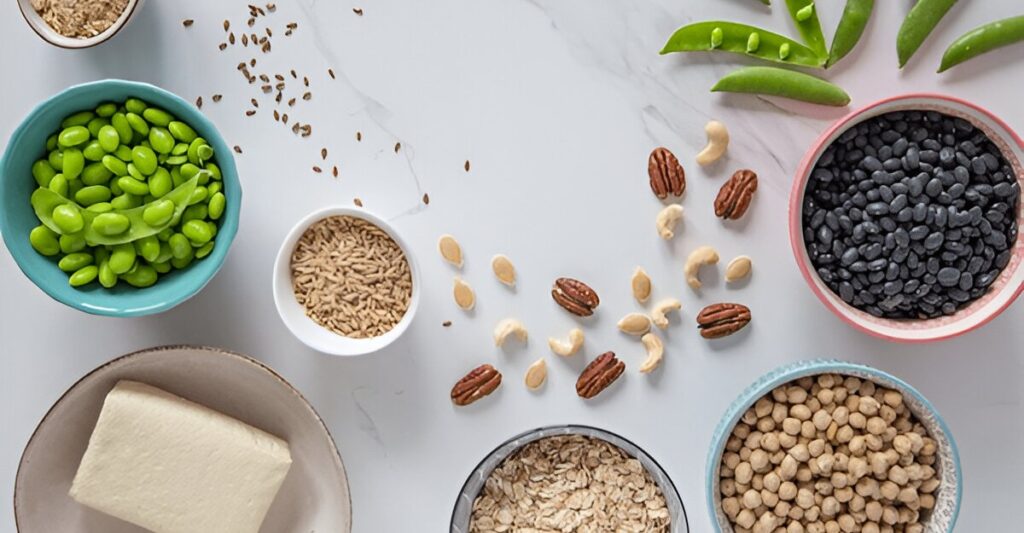Embarking on a fitness journey is an exciting step toward a healthier, stronger you. Whether you’re hitting the gym, trying yoga, or starting a running routine, nutrition plays a pivotal role in your success. For beginners, navigating the world of fitness nutrition can feel overwhelming with endless advice on diets and supplements. But getting the basics right can make all the difference. In this article, we’ll share practical nutrition tips for fitness beginners to help you fuel your workouts, recover effectively, and build sustainable habits for long-term health.
Why Nutrition Matters for Your Fitness Journey
Exercise and nutrition go hand in hand. While workouts build strength and endurance, proper nutrition provides the energy, nutrients, and recovery support your body needs to perform and improve. For fitness beginners, understanding nutrition for fitness beginners ensures you’re not just working hard but also working smart. Good nutrition helps you:
- Boost energy for workouts
- Support muscle repair and growth
- Enhance recovery to prevent fatigue or injury
- Maintain a healthy weight and body composition
- Improve overall health and well-being
Let’s dive into actionable nutrition tips to set you up for success on your fitness journey.
Nutrition Tips for Fitness Beginners
These beginner-friendly tips are designed to help you nourish your body without overwhelming you with complex rules or restrictions.
1. Prioritize Balanced Meals
A balanced diet is the foundation of nutrition for fitness beginners. Each meal should include:
- Protein: Supports muscle repair and growth. Include lean sources like chicken, fish, eggs, tofu, or legumes.
- Carbohydrates: Provide energy for workouts. Choose complex carbs like oats, brown rice, sweet potatoes, or whole-grain bread.
- Healthy Fats: Aid hormone production and nutrient absorption. Opt for avocados, nuts, olive oil, or fatty fish.
- Fruits and Vegetables: Deliver vitamins, minerals, and fiber for overall health and recovery.
A balanced plate might look like grilled chicken with quinoa and steamed broccoli drizzled with olive oil. Aim for variety to ensure you’re getting a wide range of nutrients.
2. Time Your Meals Around Workouts
When you eat can be as important as what you eat. Timing your meals optimizes energy and recovery, especially for fitness beginners. Follow these guidelines:
- Pre-Workout (1–2 hours before): Eat a small meal or snack with carbs and a little protein, like a banana with peanut butter or Greek yogurt with berries. This fuels your workout without weighing you down.
- Post-Workout (within 30–60 minutes): Have a meal or snack with protein and carbs to replenish energy stores and repair muscles. A protein shake with fruit or a turkey sandwich on whole-grain bread works well.
- Throughout the Day: Eat every 3–4 hours to maintain energy and prevent overeating. Regular meals keep your metabolism steady and support your fitness goals.
3. Stay Hydrated
Hydration is a critical but often overlooked part of nutrition for fitness beginners. Water supports every bodily function, from regulating temperature to transporting nutrients. During exercise, you lose water through sweat, so staying hydrated is key to performance and recovery.
- Aim for 8–10 cups (2–2.5 liters) of water daily, more if you’re active or in a hot climate.
- Drink water before, during, and after workouts. Sip 4–8 ounces every 15–20 minutes during exercise.
- Enhance hydration with electrolyte-rich foods like bananas or a pinch of sea salt in your water if you sweat heavily.
4. Focus on Whole Foods
Whole, minimally processed foods are the cornerstone of nutrition for fitness beginners. They provide high-quality nutrients without the added sugars, unhealthy fats, or artificial ingredients found in processed foods. Stock your kitchen with:
- Fresh or frozen fruits and vegetables
- Whole grains like quinoa, brown rice, or oats
- Lean proteins like eggs, chicken, or lentils
- Healthy fats like nuts, seeds, or avocado
Swap processed snacks like chips for whole-food alternatives like apple slices with almond butter. Whole foods fuel your body efficiently and support long-term health.
5. Don’t Skip Protein
Protein is essential for fitness beginners because it repairs muscles damaged during exercise and helps them grow stronger. Aim for 0.5–0.8 grams of protein per pound of body weight daily (e.g., 75–120 grams for a 150-pound person). Spread protein intake across meals to maximize absorption—think 20–30 grams per meal.
Great protein sources include:
- Animal-based: Eggs, salmon, turkey, Greek yogurt
- Plant-based: Tofu, tempeh, chickpeas, quinoa
If you struggle to meet your protein needs, consider a protein powder for post-workout shakes, but prioritize whole foods first.
6. Be Mindful of Portion Sizes
Even healthy foods can lead to weight gain if portions are too large. Learning proper portion sizes is a key part of nutrition for fitness beginners. Use these visual cues:
- Protein: A palm-sized portion (3–4 ounces)
- Carbs: A fist-sized portion (1/2–1 cup cooked)
- Fats: A thumb-sized portion (1–2 tablespoons)
- Vegetables: Two handfuls (1–2 cups)
Eating slowly and stopping when you’re 80% full can also help you avoid overeating while staying satisfied.
7. Limit Sugary Drinks and Alcohol
Sugary drinks like soda, energy drinks, or sweetened coffee can add empty calories that sabotage your fitness goals. Alcohol, while fine in moderation, can hinder recovery and dehydrate you. For nutrition for fitness beginners, prioritize:
- Water or unsweetened tea as your main beverages
- Black coffee or herbal tea for a caffeine boost
- Occasional treats like a glass of wine, but keep it to 1–2 drinks
These choices keep your calorie intake in check and support your body’s performance.
8. Plan and Prep Meals
Busy schedules can derail even the best intentions. Meal planning and prepping are lifesavers for fitness beginners. Set aside time each week to:
- Plan your meals and snacks, ensuring they align with your fitness goals.
- Shop for ingredients to avoid last-minute unhealthy choices.
- Prep components like cooked grains, chopped veggies, or grilled chicken for quick assembly.
A prepped lunch like a mason jar salad with quinoa, veggies, and grilled chicken makes sticking to nutrition for fitness beginners effortless.
9. Listen to Your Body
Your body is your best guide. Pay attention to how foods make you feel during and after workouts. Do you feel energized or sluggish? Are you recovering well or feeling sore? Adjust your diet based on these cues. For example, if you’re tired during workouts, you may need more carbs. If you’re not recovering, try increasing protein.
10. Be Patient and Consistent
Nutrition for fitness beginners isn’t about perfection—it’s about progress. Small, consistent changes, like adding a serving of vegetables daily or swapping soda for water, add up over time. Avoid fad diets or extreme restrictions, as they’re unsustainable and can harm your progress. Focus on building habits that you can maintain for life.
Common Nutrition Mistakes for Fitness Beginners
Avoid these pitfalls to make the most of your fitness journey:
- Skipping Meals: This can lead to overeating later or low energy during workouts. Eat regularly to stay fueled.
- Over-Relying on Supplements: Protein powders or vitamins are supplements, not replacements for whole foods.
- Cutting Carbs Too Low: Carbs are your body’s primary energy source. Choose complex carbs to power your workouts.
- Ignoring Recovery Nutrition: Post-workout meals are crucial for rebuilding muscles and replenishing energy.
Conclusion
Starting a fitness journey is an empowering decision, and proper nutrition is the fuel that keeps you going. By focusing on balanced meals, timing your nutrition, staying hydrated, and choosing whole foods, you’ll set yourself up for success. These nutrition tips for fitness beginners are designed to be simple, sustainable, and effective, helping you build strength, energy, and confidence. Embrace these habits, listen to your body, and enjoy the journey to a healthier, fitter you!


